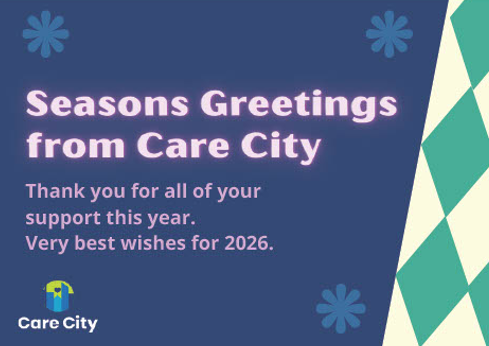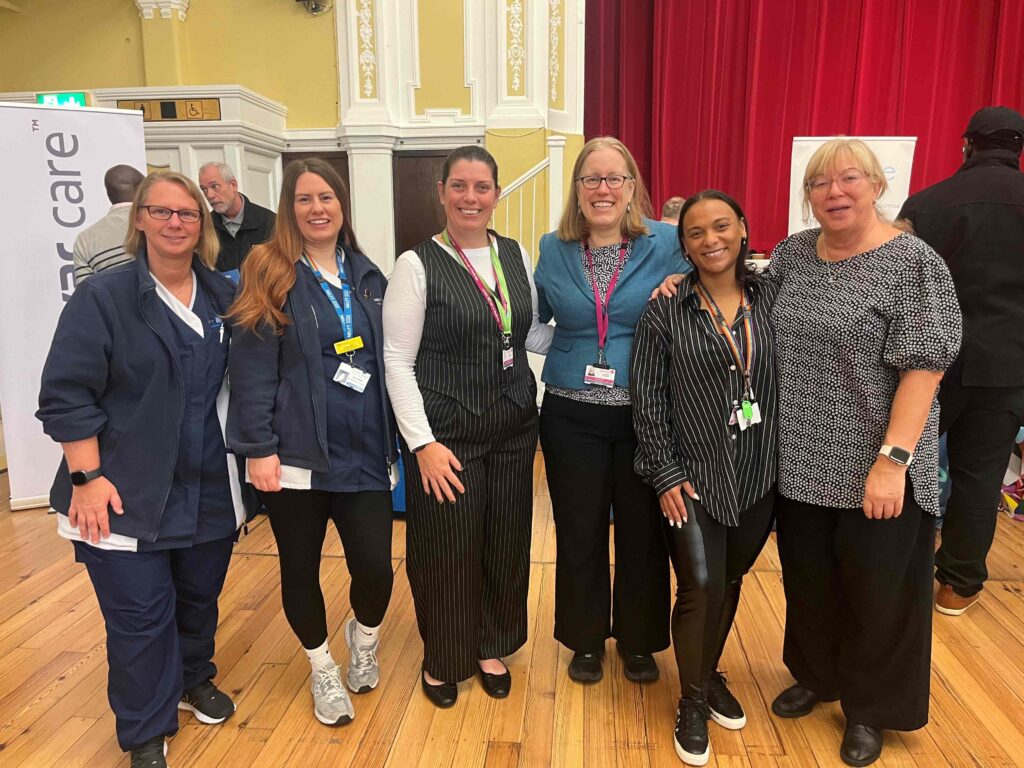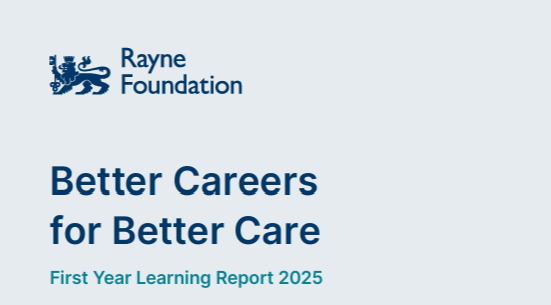Empowering Care Staff: Training, Recognition & Collaboration in Kit4Care
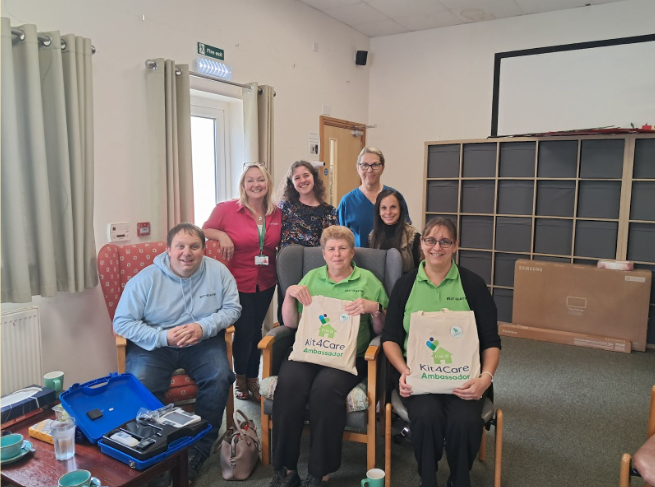
Pia Barna‘s latest blog focuses on building skills, strengthening relationships, and boosting confidence to transform care through the Kit4Care programme.
If you’ve been following our previous blogs, you will know by now that close collaboration between domiciliary care providers and local primary care colleagues is at the heart of the Kit4care programme.
If you need a quick reminder of what Kit4care is all about: we are trialling a new way of working where care staff are trained to take a set of basic clinical observations on a regular basis. When there is a cause for concern, care professionals flag this to their health care colleagues, enabling quick intervention.
Building confidence through training
A key aim of the project was to build confidence in new ways of working, helping care colleagues become more comfortable with ongoing training and collaboration with health professionals. To ensure they had the right skills, we arranged for each staff member to attend two essential training courses:
- RESTORE2 Training: This training focuses on strengthening skills to identify early signs of health deterioration, respond appropriately to concerns, and effectively communicate findings to healthcare professionals. Delivered by Torbay and South Devon NHS Foundation Trust, the training has been highly praised for its practical insights and its impact on improving staff confidence and preparedness.
- WHZAN Blue Box Training: Conducted remotely by the WHZAN team, this training aims to familiarise staff with the WHZAN Blue Box tools and enhance their ability to take basic health observations with confidence. Each Blue Box includes a mobile device that guides users through the observation process and features a National Early Warning Score (NEWS2) calculator, which assesses risk levels to support clear communication and prompt action.
Building connections through branding
We felt it was essential for all staff to feel connected as part of a larger collective, even if meeting in person wasn’t always possible due to geographical distances. To give the Kit4Care programme its own identity, we designed a dedicated logo and curated a gift bag filled with useful items for our colleagues, which we distributed during our most recent visit.
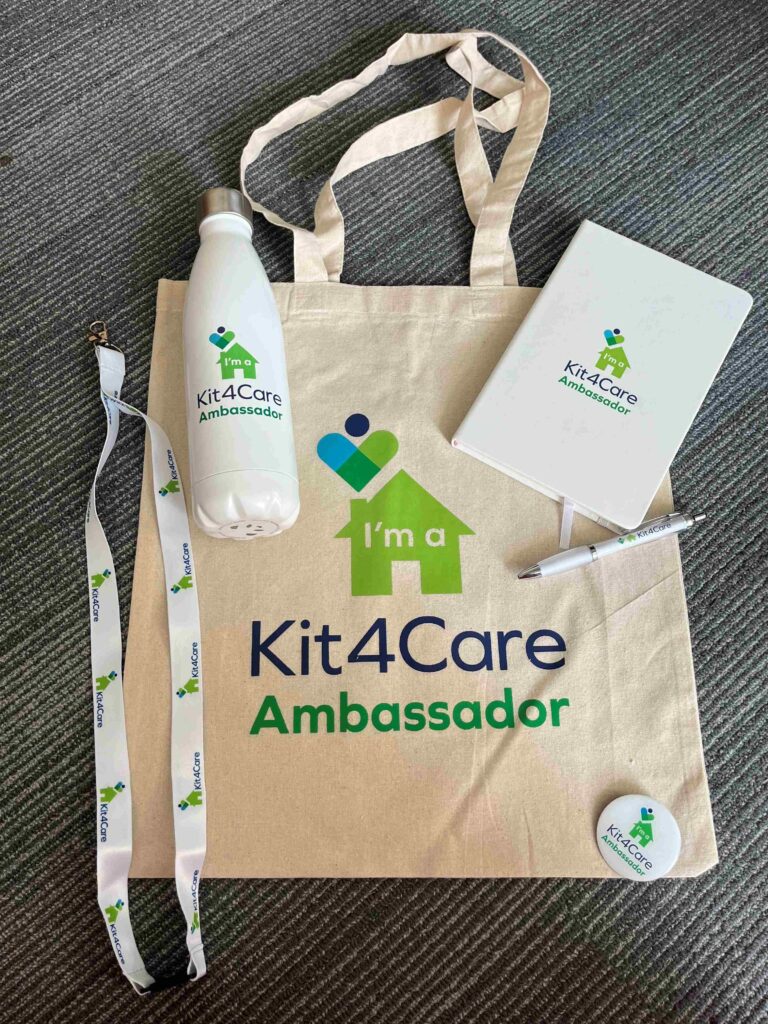
Recognising care colleagues’ efforts in a tangible way—through thoughtful, unexpected gestures—brought real joy to the groups. It reinforced both the seriousness of our commitment (“we’re going to make this happen”) and the idea that positive change is possible. This approach encouraged resilience, camaraderie, and emotional investment in the project, ultimately leading to better outcomes.
Every staff member also received a certificate for the training sessions they attended—small but meaningful acknowledgments that were well received.
Unicare team receiving their Kit4Care certificates
Network Healthcare team receiving their Kit4Care certificates.
Building relationships
We managed to visit all localities in person and every single time we were met with such kind hospitality.
With Care City being based in London, it is important that we make the most out of our visits in Devon. We felt that taking the teams out for dinner was a great way of spending time in an informal way, getting to know each other better and strengthening relationships. It felt like a major component in developing generative relationships.
These in-person meetups have provided invaluable opportunities for deeper conversations, allowing us to truly understand how care staff feel about their roles, what they cherish most about their work, and where they see the greatest challenges. A recurring theme we’ve noticed is the profound passion many care workers have for their profession. They often describe it as incredibly fulfilling to support their clients so closely, highlighting the meaningful impact of their work.
Programme Evaluation
Care staff’s voices play an integral role in contributing to our evaluation of this project. By means of a survey, we have captured staff’s views on a variety of scenarios, including:
- Confidence in sharing concerns about a client with a health professional
- Frequency of contacting ambulance services for clients
- Levels of concern clients experience about their health
- Development in their role and opportunities for progression
The same assessment took place at the end of the project to capture any notable differences. Stay tuned for the next blog, where we’ll share the key findings from our evaluation!

